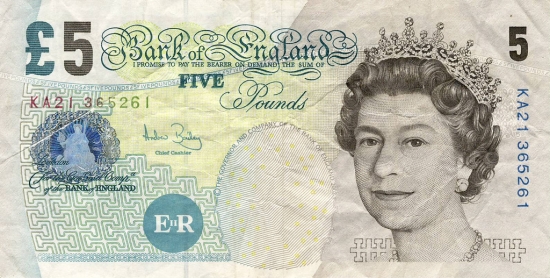British banknotes have been around since the 16th century and have pretty much remained the same since then. Obviously they have been updated and reprinted regularly with different designs, but apart from that not much has changed. But that could all change in December.

The Bank of England is proposing that we change to a plastic style banknote made from polymer. These would be introduced into circulation from 2016 starting with the £5 note and then the £10 note. So what are the advantages of switching to a banknote made from polymer?
The new banknotes shouldn’t affect the way you shop as they would still fit in wallets and purses as they are slightly smaller than current notes and will be thin and flexible.
Speaking of the change, Charles Bean, Deputy Governor of the Bank of England, said: “Polymer banknotes are cleaner, more secure and more durable than paper notes. They are also cheaper and more environmentally friendly.
“However, the Bank of England would print notes on polymer only if we were persuaded that the public would continue to have confidence in, and be comfortable with, our notes.”
The Bank of England is planning to conduct a consultation programme of 50 events across the UK to gain the public’s opinion on the new style banknote. City’s that they will be visiting include; Cambridge, Cardiff, Glasgow, London, Manchester and Southampton to name a few.
The programme will finish on 15th November and a decision by the bank, based on feedback that they have received, will be made in December as to whether or not the new polymer banknotes will go ahead.
Charles added: “The results of the consultation programme on which we are embarking will therefore form a vital part of our assessment of the merits of polymer banknotes.”
Do you think it’s time for a banknote change? Do you welcome the polymer banknotes or do you prefer to keep things as they are? After all, if it’s not broke, why fix it?